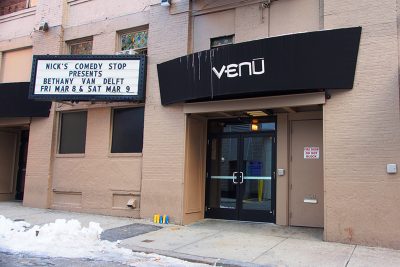
By Eva Bergman and Joel Lau
After 23-year-old Jassy Correia was kidnapped outside a bar on the night of her birthday and later found dead last week, law enforcement officials and sexual assault prevention activists said systemic changes needed to be made to ensure the safety of women and gave suggestions on how students can stay safe when going out.
Correia was exiting Venu, a Boylston-area nightclub, when she was approached by a man and boarded his vehicle, according to an affidavit filed Sunday. She went missing, and five days later, police recovered Correia’s body and arrested the man while he was driving in Delaware.
The alleged kidnapper, Louis Coleman III, was later charged with kidnapping resulting in death, and is awaiting trial in Boston.
Kelly Nee, chief of the Boston University Police Department and BU’s executive director of public safety, wrote in an email she thinks with any instance of sexual assault or violence, blame rests solely on the perpetrator of the crime.
“It’s important to be mindful of personal safety, but I can’t emphasize enough the person who committed this crime is the problem,” Nee wrote. “Not the actions of this poor victim or her friends.”
Nee wrote it is horrible that women are forced to develop strategies to keep themselves safe from sexual assault or harm while going out, as they should not have to worry about their safety at night.
“Women SHOULD be able to go out in public and celebrate their birthdays without fear of being abducted and murdered,” she wrote. “… It’s terrible that women have to plan to keep themselves and their friends safe.”
Maisha Miraj, a spokesperson for the Boston Police Department, wrote in an email several safety strategies students could adopt.
These include remaining in well-lit and populous areas, wearing shoes allowing for added mobility, calling ahead to your destination to confirm you are on your way and keeping car keys nearby to use as a weapon in the event of an attack.
Miraj wrote students need to remain vigilant when going out and be unafraid to speak up if they feel uncomfortable at any time.
“Walk with confidence. Be assertive. Don’t let anyone violate your space,” Miraj wrote. “Trust your instincts and know that anyone at any time can be a victim of crime. Never assume: ‘IT WILL NEVER HAPPEN TO ME.’”
Eliza Campbell, a community engagement specialist for the Boston Area Rape Crisis Center, said the most effective way to promote women’s safety in environments such as a bar or club is to educate and train bystanders to recognize a suspicious situation.
“I will say that most of the conversations about safety do tend to sort of focus on what individuals can do,” Campbell said. “And what we know to be most effective is actually for people as bystanders to be really active and aware of what’s going on around them.”
Campbell said alert bystanders are able to check in with potential victims and intervene in situations where the victim might feel intimidated or trapped, providing him or her with an escape.
“Just being aware of your surroundings and being willing to sort of step up as the bystander and check in with people, make sure they’re safe, that kind of thing,” Campbell said. “And that’s really what helps sort of keep communities most safe, when people are sort of aware and activated like that.”
Campbell said while individuals of all genders can fall victim to sexual violence, women particularly feel the need to take extra precautions because society has systematically disregarded and discriminated against survivors.
“A lot of the conversation is directed toward women, in part because we live in a culture that has enabled and minimized sexual violence and sex and violence against women,” Campbell said. “So people feel like they have they have no choice but to take safety into their own hands.”
In order to institute concrete change within society, Campbell said the United States needs to begin educating its children on the basics of sexual assault prevention, as well as consent.
“[We need] education from an early age about healthy relationships, boundaries is a really big one,” Campbell said. “So even with little kids talking about, ‘You have a right to not hug someone if you don’t want to hug them,’ and things like that, talking about consent.”
Several BU students said discussing and establishing safety procedures in advance helps them to feel more safe and at ease while going out.
Polina Lissin, a sophomore in the College of Arts and Sciences, said she makes sure to communicate with her friends before going out at night by sharing their locations with each other to ensure their safety in unfamiliar or potentially hazardous environments.
“Especially if my friends and I are going somewhere new or if we are traveling internationally, we designate a meeting point at a certain time.” Lissin said. “… We deem that at the beginning of the night, and if we have service and stuff, we will text and communicate about it.”
Ivy Zhang, a junior in the College of Communication, said whenever she goes to bars, she makes sure to stay with a group of friends at all times so that they are able to keep track of each other’s whereabouts.
“One of the big things is staying close together,” Zhang said. “Like even if we are in a really crowded place, usually you want to make sure that, regardless of where people are, you kind of have an eye on them and know at least where they are in the room.”
This is an account occasionally used by the Daily Free Press editors for posts with multiple authors or otherwise for special circumstance publications. See authorship info on the byline at the top of the page.




